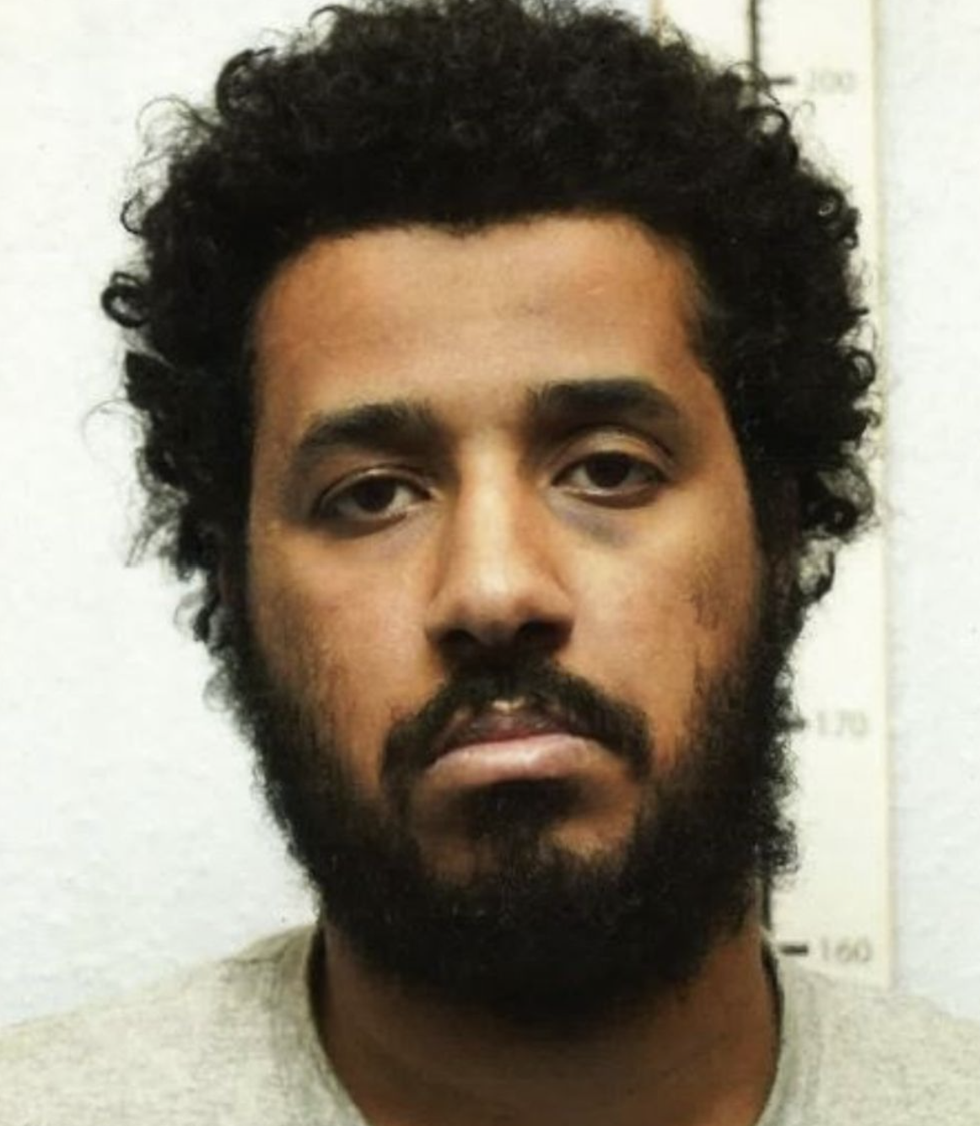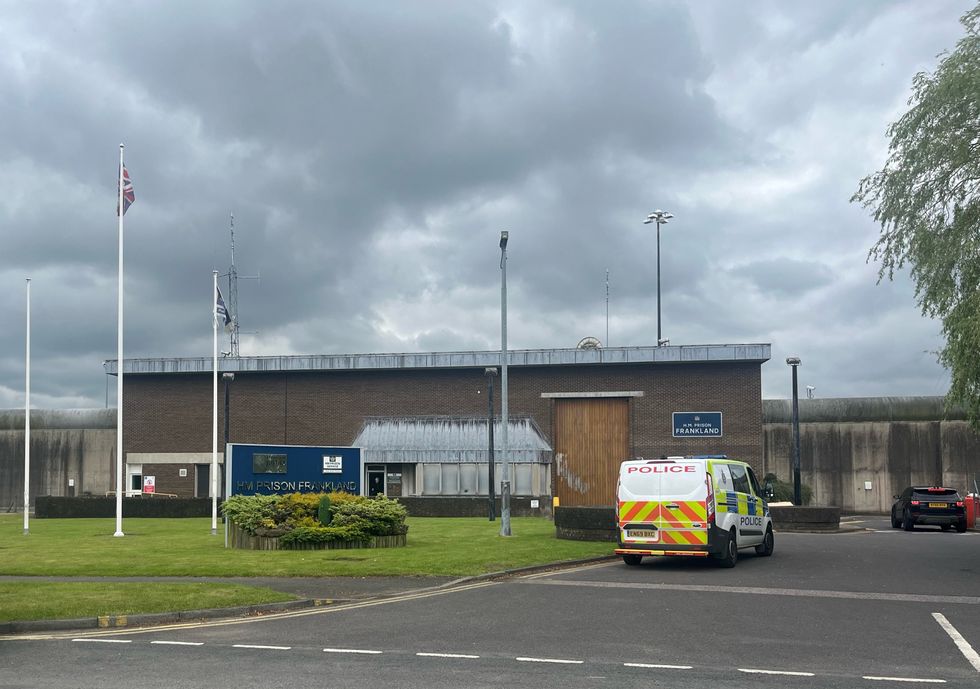A High Court judge has ruled the segregation of a convicted terrorist from other prisoners following an attack breached his human rights.
Sahayb Abu received a life sentence for terrorism offences with a minimum term of 19 years in 2021 for plotting a lone wolf knife attack during the coronavirus lockdown.
Mr Justice Sheldon ruled on Tuesday that the segregation measures imposed on Abu were unjustifiable and breached his fundamental rights.
He isolated after Hashem Abedi, whose brother carried out the Manchester Arena bombing, allegedly assaulted multiple prison officers on April 12.
Abu had been serving his sentence after being convicted in April 2021 for preparing terrorist acts, having discussed firearms with an undercover officer he encountered in a Telegram group supporting Islamic State.
His half-siblings, Wail and Suleyman Aweys, travelled to Syria in 2015 to join Islamic State and are presumed dead.
Prison authorities transferred Abu to HMP Frankland’s separation centre in County Durham in September, where facilities were established in 2017 to manage inmates with extremist views who might radicalise others or disrupt prison operations.
Following the April 12 incident involving Abedi, Abu was relocated to HMP Woodhill in Buckinghamshire on April 17, then subsequently to HMP Full Sutton in East Yorkshire.

Sahayb Abu was arrested and jailed in 2021
|
MET POLICE
The alleged assault prompted government announcements about equipping prison staff with protective gear and testing tasers in correctional facilities.
Abu’s legal team initiated proceedings against the Ministry of Justice in August, arguing that apart from eight weeks when he could interact with one other inmate, he remained completely isolated from fellow prisoners.
His barristers contended in October that the ongoing segregation violated articles three and eight of the European Convention on Human Rights, which safeguard against torture, inhumane treatment and protect private and family life.
For approximately four months, Abu could only communicate with other inmates through his cell window and received just one hour and ten minutes outside his cell daily, according to Mr Justice Sheldon.

Abu was residing at HMP Frankland
|
PACourt documents revealed Abu experienced paranoia, became “very reclusive”, felt “constantly fearful” and “very despondent”, believing “there was no point to my life”.
He reported auditory hallucinations, describing a “growling man’s voice in my head” that caused him significant distress.
Medical professionals testified to the High Court that Abu experienced auditory and visual hallucinations alongside “PTSD and severe depression”, conditions that segregation “seriously exacerbated”.
In his 149-page ruling, Mr Justice Sheldon stated: “The suffering that the claimant has experienced goes way beyond the inevitable element of suffering that is connected with segregation.”

Sahayb Abu plotted the terror attack
|
PA
The judge noted that whilst isolation naturally causes distress, Abu’s experience was “much more severe”, with post-traumatic stress disorder “brought on, at least in part, by the segregation”.
He determined the Ministry of Justice failed to “provide him with any therapeutic treatment” despite Abu’s trauma history.
The judged added that “no reasonable decision-maker could have failed” to secure an “essential” mental health assessment.
He indicated he would “consider representations” regarding remedial measures, including whether “just satisfaction requires the payment of damages”.
Abu, who nicknamed himself “The Masked Menace” purchased an 18-inch sword, a knife, balaclavas and body armour online with the intention of carrying out an attack.
He was arrested on July 9, 2021 after discussing guns with an undercover police officer, after buying the items to make a parody video, telling a court at the time he had wanted to “create a rap character” to get “signed like Stormzy.”
Head of the Met’s Counter Terrorism Command Commander Richard Smith said: “He is an extremely dangerous individual but thanks to the efforts of counter-terrorism officers and MI5, he will now spend a considerable time behind bars where he poses no risk to public safety.
“This is a prime example of how our officers and the security services are working together to keep people safe.
“Every day, counter-terrorism teams are identifying and targeting individuals and groups with terrorist intent.”

